The discussion took place within the framework of the Opening Ceremony of the United Nations Convention against Cybercrime ( Hanoi Convention).
Rapid rise of cybercrime
Minister Nguyen Hai Ninh stated: Twenty-five years after the United Nations Convention against Transnational Organized Crime (Palermo Convention) was adopted in Italy in 2000 – the first global legal document on combating transnational crime – the world has witnessed the birth of another global convention in this field – the Hanoi Convention.
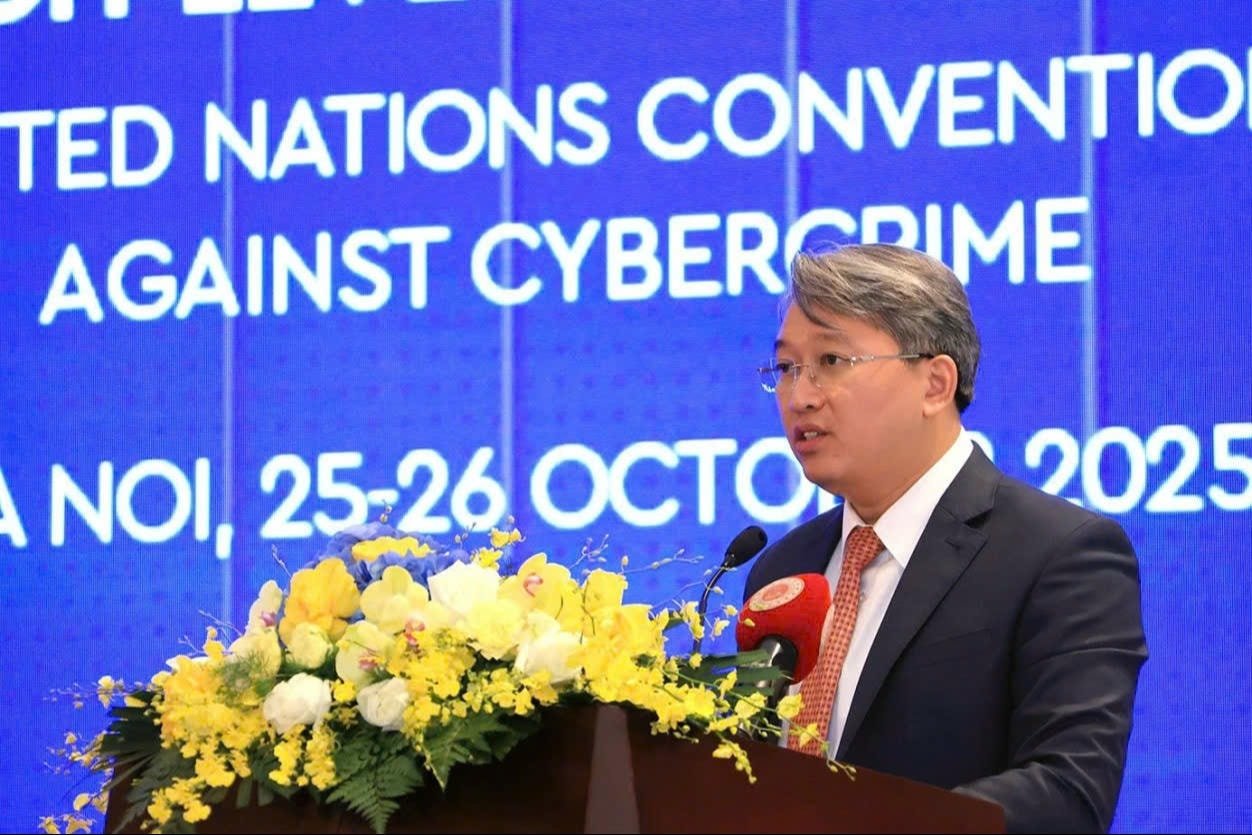
Minister of Justice Nguyen Hai Ninh emphasized that alongside technological advancements, there has been a rapid increase in cybercrime on a global scale and with increasingly complex methods of operation.
We are living in the era of the Fourth Industrial Revolution, shaped by disruptive technologies such as Artificial Intelligence (AI), Big Data, Blockchain, and the Internet of Things (IoT). Data has become a strategic resource, delivering immense economic and social value, ushering in a new era of development where individuals can connect, learn, and innovate without borders. However, alongside these technological achievements comes a rapid increase in cybercrime on a global scale and with increasingly sophisticated methods.
"These threats not only cause economic damage but also directly threaten national security, human rights, and civil rights," the Minister emphasized. In this context, according to the Minister, the opening ceremony of the Hanoi Convention is of particular importance, serving as a forum for the international community to demonstrate its commitment and unified action in the fight against cross-border cybercrime.
4 key solutions to ensure human rights and civil rights in the digital environment
Pointing out the challenges in Vietnam, Minister Nguyen Hai Ninh stated that the core value of digital transformation and technology must be built on the foundation of ensuring human rights and civil rights in the digital environment. To realize this vision, Vietnam proposed several key solutions:
Firstly , it is necessary to focus on perfecting the legal framework for protecting human rights and civil rights in the digital environment, based on international human rights treaties.
As a signatory to most of the United Nations' important international human rights conventions, Vietnam is well aware that these instruments not only recognize fundamental rights but also establish international standards for protecting and promoting those rights in practice. A concrete step in this process is the signing of the Hanoi Convention today, creating a new legal instrument to effectively address violations of human rights and civil rights in the online environment. It can be affirmed that the relationship between the human rights conventions and the Hanoi Convention is complementary and forms a synchronized legal system; while the human rights conventions establish the content of rights, the Hanoi Convention provides a legal mechanism to protect those rights from threats in the digital environment. A clear example of this is the provision in Articles 14, 15, and 16 of the Hanoi Convention on Measures to Prevent and Address Acts Using Information Technology to Infringe on the Rights of Children – rights already recognized in the 1989 Convention on the Rights of the Child.
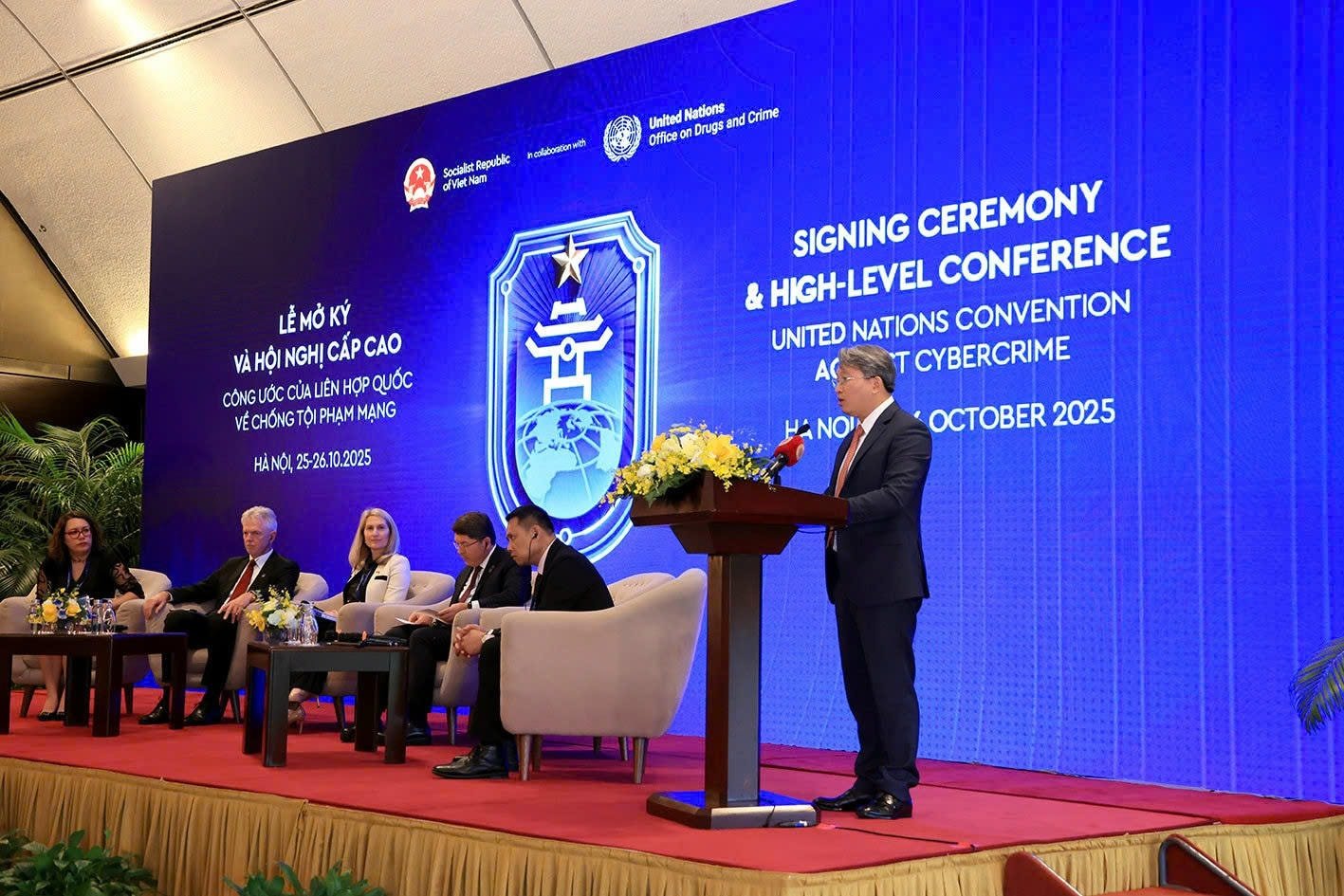
Minister of Justice Nguyen Hai Ninh speaks at the discussion session.
Furthermore, the key value of the Hanoi Convention lies in its ability to promote international cooperation. In the context of increasingly transnational cybercrime, cooperation between nations is identified as a decisive factor in effective prevention. The signing of the Hanoi Convention today is a step towards realizing that commitment, aiming to establish a transparent and timely data sharing mechanism, contributing to the effective prevention of human rights violations in cyberspace, and ensuring a safe and healthy digital environment.
Secondly , it is essential to ensure harmony between national and international law, linking the principles of international law with the specific conditions of each country.
We need to agree that, while international law is universal, it cannot completely replace the legal framework of each individual country. Based on its specific economic, cultural, and social characteristics, each country must proactively improve its legal system to ensure consistency with international law and enhance the effectiveness of implementing international commitments within its own country. This spirit has been clearly realized in Vietnam when, for the first time in constitutional history, provisions on the protection of human rights and civil rights were included in a separate chapter of the 2013 Constitution. This is considered a significant step forward in constitutional thinking, affirming Vietnam's commitment to comprehensively protecting and guaranteeing human rights and civil rights.
Over the years, Vietnam has strived to improve its legal framework through the amendment, supplementation, and promulgation of numerous legal documents, establishing a strict legal framework and sanctions to prevent and severely punish violations of human rights and civil rights in the digital environment at all three levels: criminal, administrative, and civil. Notable among these are important documents such as the Penal Code, the Civil Code, and the Law on Handling Administrative Violations. In particular, Vietnam has enacted many specialized laws such as the Law on Cybersecurity, the Law on Information Security, the Law on Personal Data Protection, the Law on Electronic Transactions, the Law on Consumer Rights Protection, the Law on Digital Technology Industry, and the Law on Science, Technology, and Innovation... demonstrating Vietnam's comprehensive approach to establishing a solid legal framework for the digital space. At the same time, affirming Vietnam's determination to ensure safety, security and promote and protect human rights in the digital age.
Minister of Justice Nguyen Hai Ninh
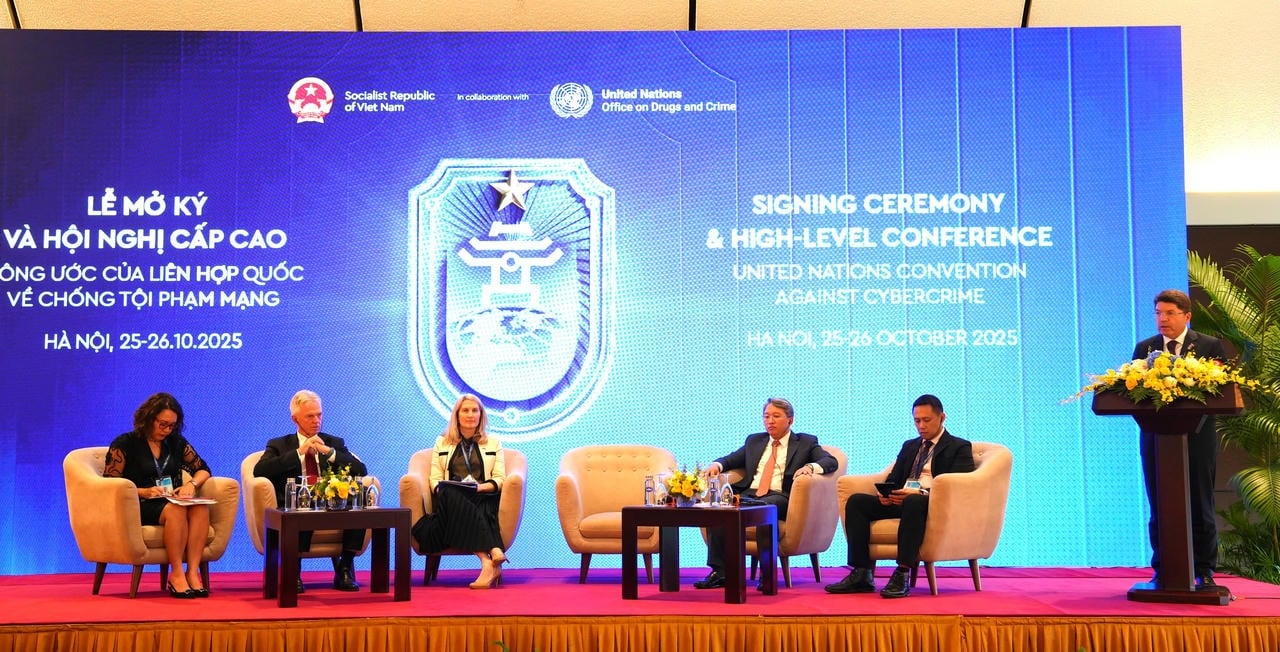
Minister of Justice Nguyen Hai Ninh (second from the right) attends the discussion session.
Thirdly , ensuring human rights and civil rights must be linked to protecting national and ethnic interests.
In the era of digital transformation, protecting human rights must go hand in hand with protecting national security and social order, creating a foundation for sustainable socio-economic development.
A recent report by Viettel Cyber Security Company (part of the Vietnam Military Telecommunications Group) paints an alarming picture: in the first six months of 2025 alone, Vietnam recorded over 8.5 million stolen personal accounts (accounting for 1.7% of the global total), nearly 4,500 phishing domains, 1,000 fake websites, and 528,000 distributed denial-of-service attacks. These figures accurately and directly reflect the severity of cybersecurity risks faced by all agencies, organizations, and individuals.
Given this situation, a holistic and comprehensive approach is needed, placing the task of protecting citizens in relation to protecting cybersecurity and information security in the online environment. This includes enhancing early warning capabilities, perfecting the legal framework, and promoting investment in modern technical solutions and raising security awareness among all individuals and organizations. Through this, we will proactively prevent, deter, and effectively respond to increasingly sophisticated and global cybersecurity threats.
Fourth , protecting citizens in cyberspace is not only the core role of the State but also the responsibility of every individual, business, organization, and the entire society.
The signing ceremony of the United Nations Convention against Cybercrime, held today in Hanoi, is not only a significant milestone in building an international legal framework for cybersecurity, but also affirms the proactive and responsible role of nations in establishing a global cooperation framework to combat cybercrime. Emphasizing this, the Minister affirmed that Vietnam is ready to cooperate comprehensively with member states, international organizations, and private partners to build a safe and healthy cyberspace, promote sustainable development, and protect global humanitarian values.
“
In the digital age, where every piece of personal data can become a target of attack, indifference is tantamount to complicity in violations. Therefore, protecting cyberspace must be considered an inseparable moral and legal obligation of every entity in society; human rights in the digital space can only be truly protected and respected when all entities proactively cooperate and share responsibility. To translate this principle into practical action, in addition to perfecting the legal framework, it is necessary to promote the synchronized implementation of solutions such as raising awareness through propaganda; strengthening and developing cybersecurity organizations and associations; enhancing dialogue and coordination between the State, businesses, and society; and mobilizing diverse resources to invest in technical infrastructure. These solutions play a crucial role in shaping a sense of responsibility and strengthening the capacity to enforce laws on protecting human rights in cyberspace.
Minister of Justice Nguyen Hai Ninh
Source: https://daibieunhandan.vn/hoan-thien-khung-phap-ly-ve-bao-ve-quyen-con-nguoi-quyen-cong-dan-tren-moi-truong-so-10392971.html










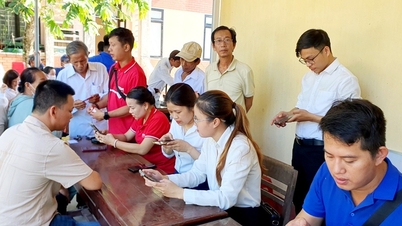

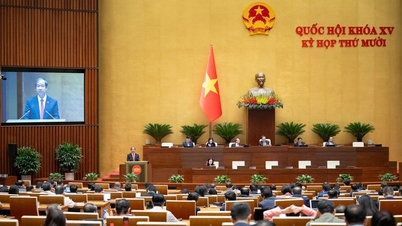



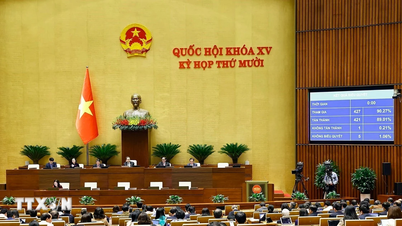




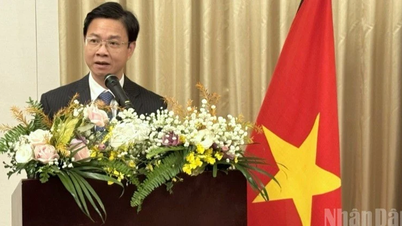

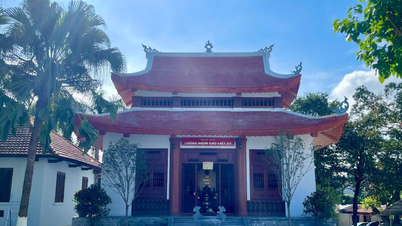

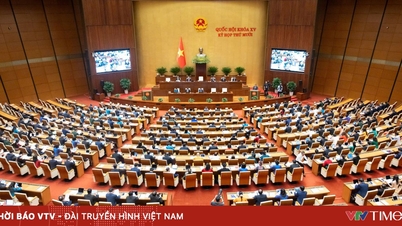

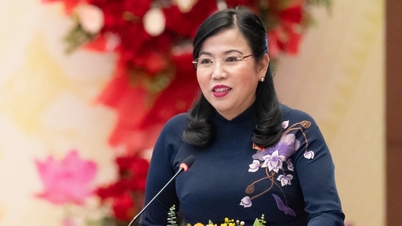

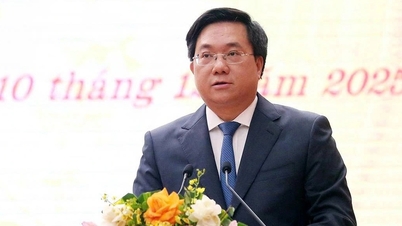




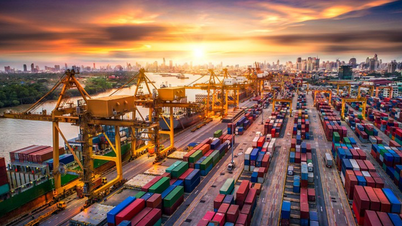
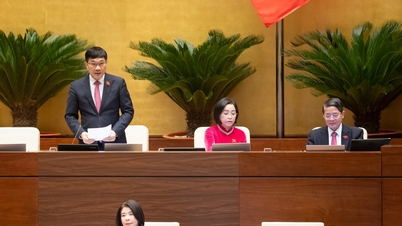
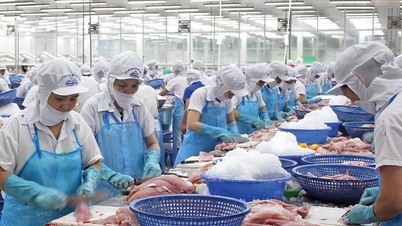
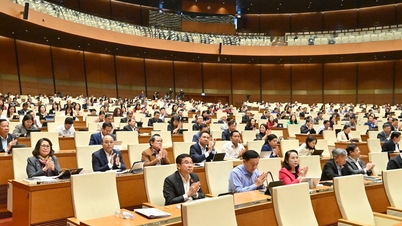
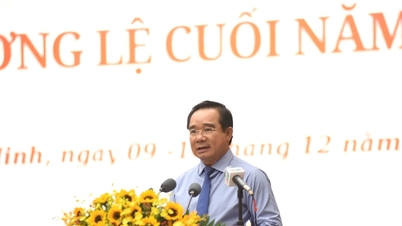



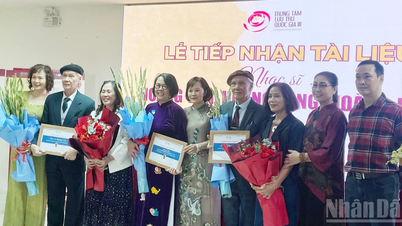





![[Video] The craft of making Dong Ho folk paintings has been inscribed by UNESCO on the List of Crafts in Need of Urgent Safeguarding.](https://vphoto.vietnam.vn/thumb/402x226/vietnam/resource/IMAGE/2025/12/10/1765350246533_tranh-dong-ho-734-jpg.webp)



































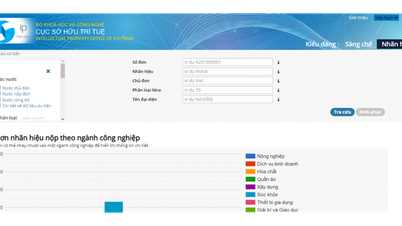
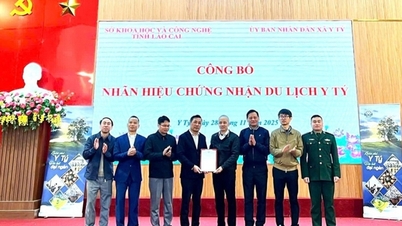




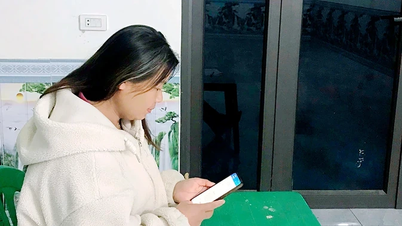



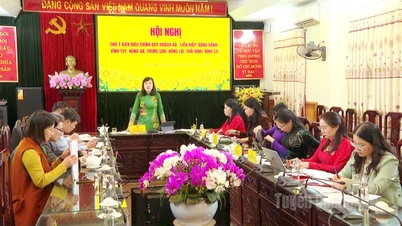











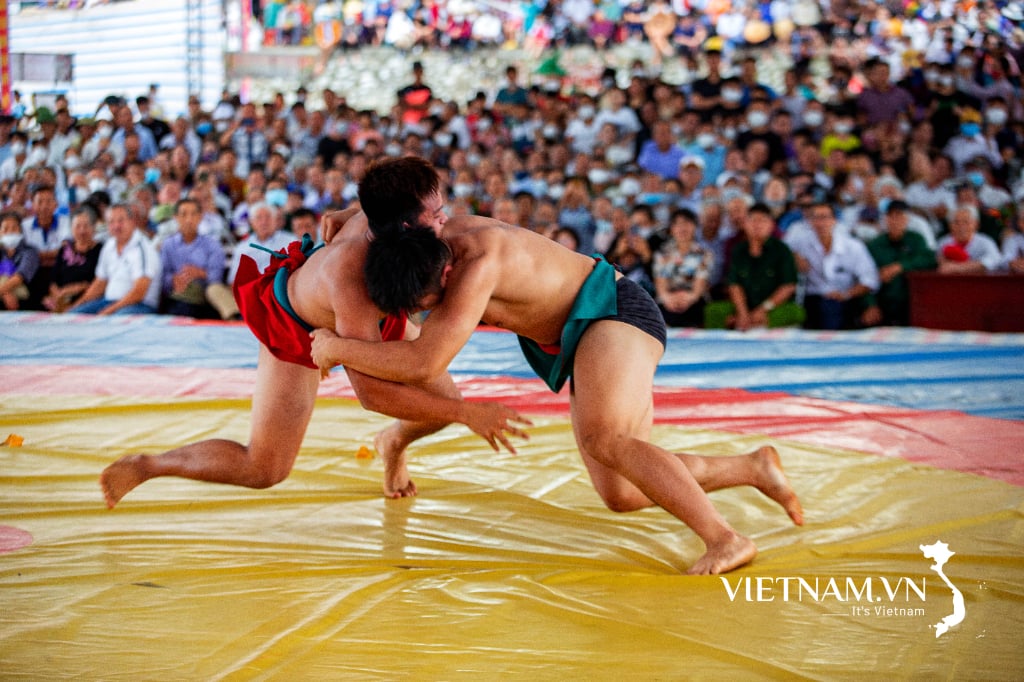






Comment (0)